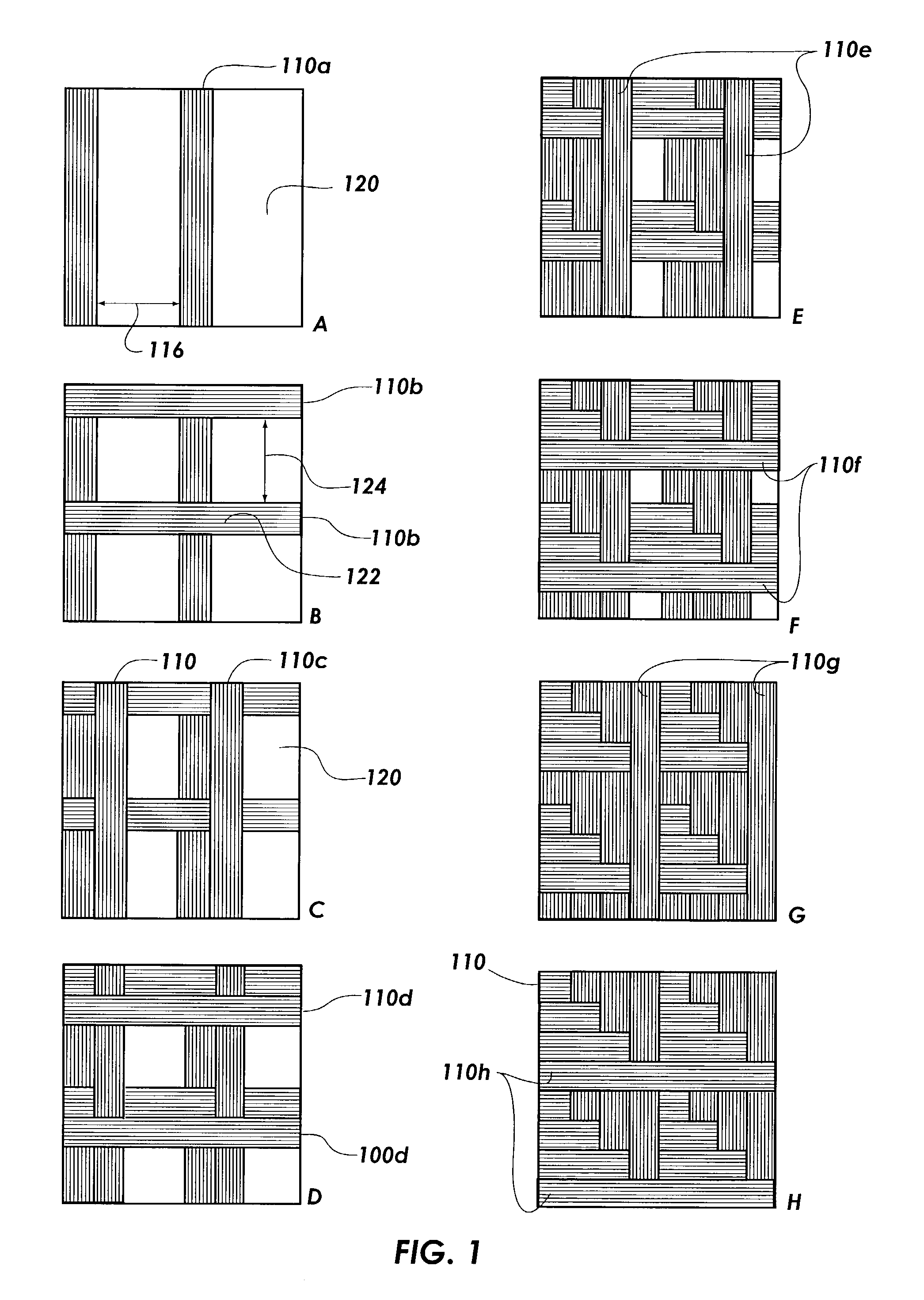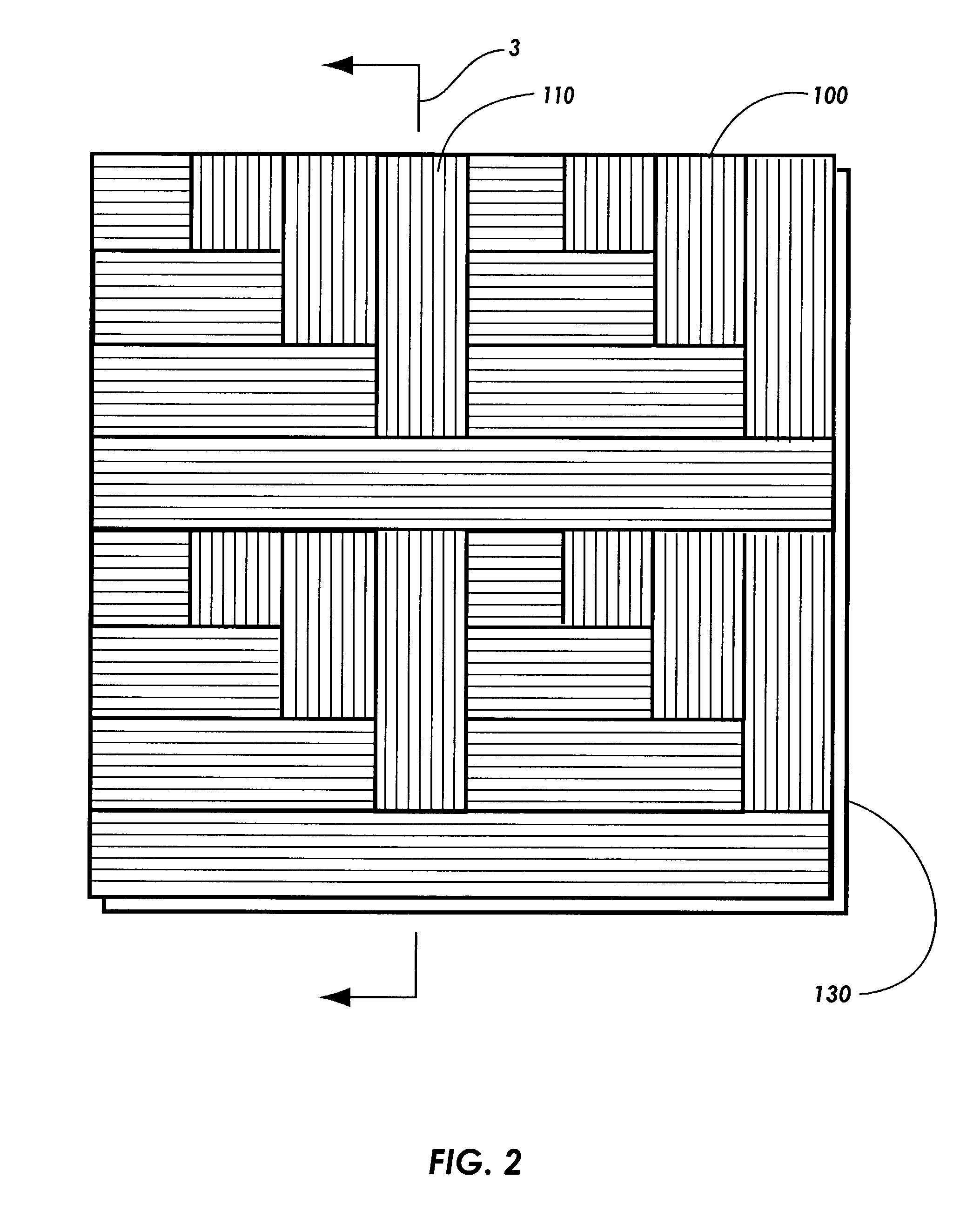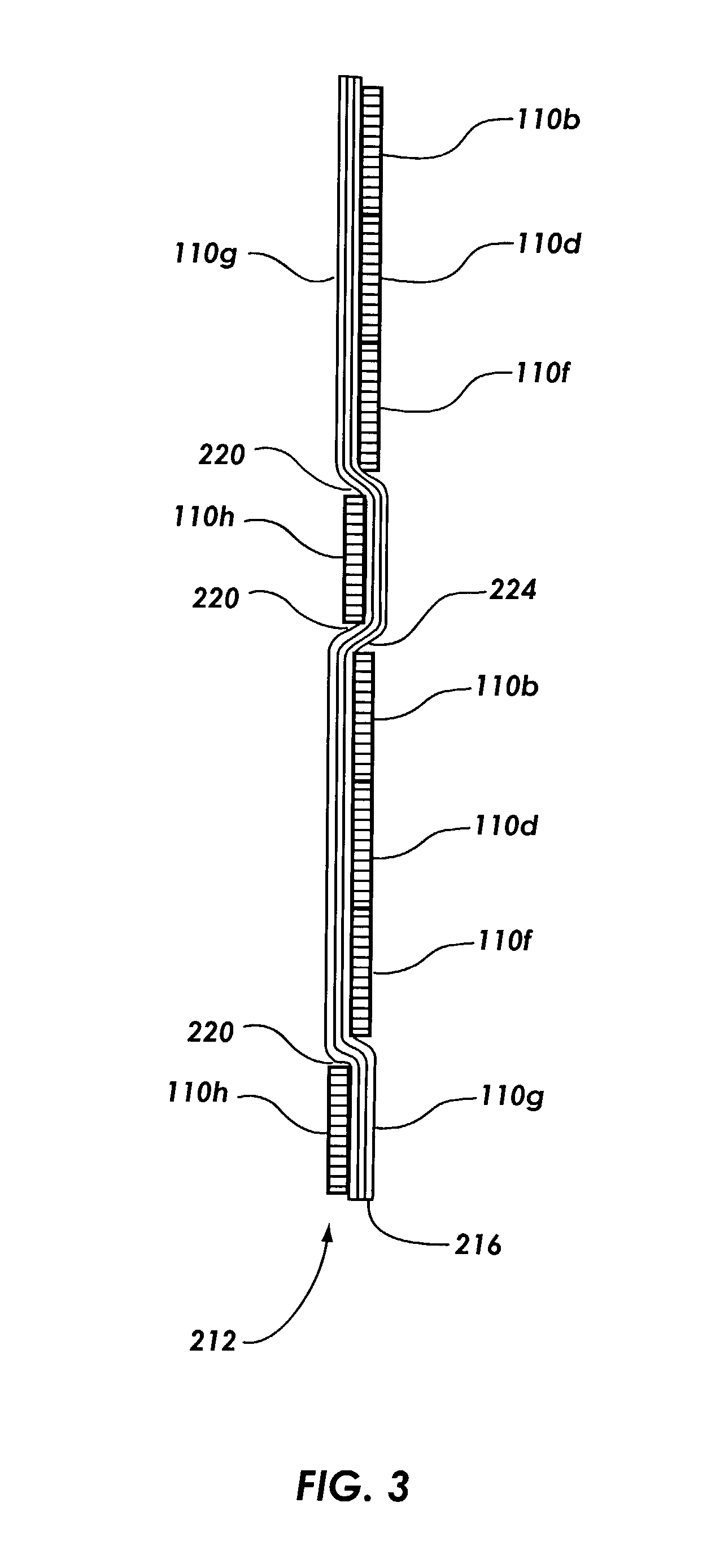Multi orientation composite material impregnated with non-liquid resin
a composite material and non-liquid resin technology, applied in the field of composite materials, can solve the problems of complex hand labor, high cost of composite materials, and inability to meet the requirements of forming the desired shape of composite materials,
- Summary
- Abstract
- Description
- Claims
- Application Information
AI Technical Summary
Benefits of technology
Problems solved by technology
Method used
Image
Examples
Embodiment Construction
summarized above will be rendered by reference to the appended drawings. Understanding that these drawings only provide selected embodiments of the invention and are not therefore to be considered limiting in scope, the invention will be described and explained with additional specificity and detail through the use of the accompanying drawings in which:
[0022] FIGS. 1A-H are top views of the process of manufacturing a composite material.
[0023] FIG. 2 is a top view of a composite sheet manufactured with in the scope of the present invention.
[0024] FIG. 3 is a cross-sectional view of the sheet of composite material of FIG. 2.
[0025] FIG. 4 is a top view of a filament winding machine winding a sheet of composite material within the scope of the present invention.
[0026] FIG. 5 is a cross-sectional perspective view of a multilayer composite material.
[0027] FIG. 6 is a pre-form manufacturing process flow diagram.
[0028] The preferred embodiments of the invention are now described with refere...
PUM
| Property | Measurement | Unit |
|---|---|---|
| Length | aaaaa | aaaaa |
| Length | aaaaa | aaaaa |
| Temperature | aaaaa | aaaaa |
Abstract
Description
Claims
Application Information
 Login to View More
Login to View More - R&D
- Intellectual Property
- Life Sciences
- Materials
- Tech Scout
- Unparalleled Data Quality
- Higher Quality Content
- 60% Fewer Hallucinations
Browse by: Latest US Patents, China's latest patents, Technical Efficacy Thesaurus, Application Domain, Technology Topic, Popular Technical Reports.
© 2025 PatSnap. All rights reserved.Legal|Privacy policy|Modern Slavery Act Transparency Statement|Sitemap|About US| Contact US: help@patsnap.com



